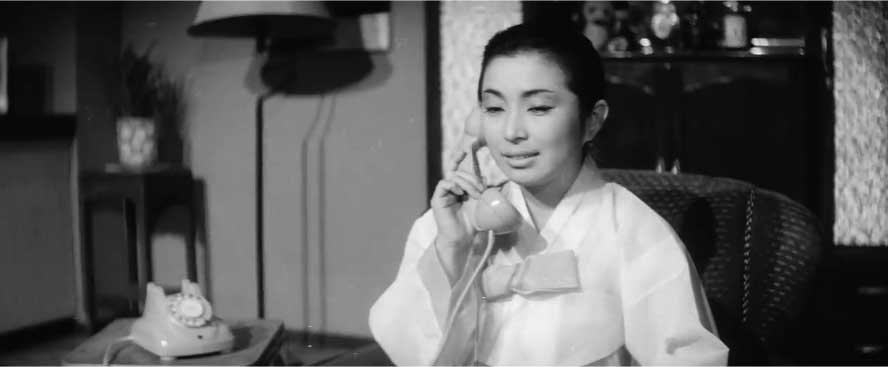A Female Boss
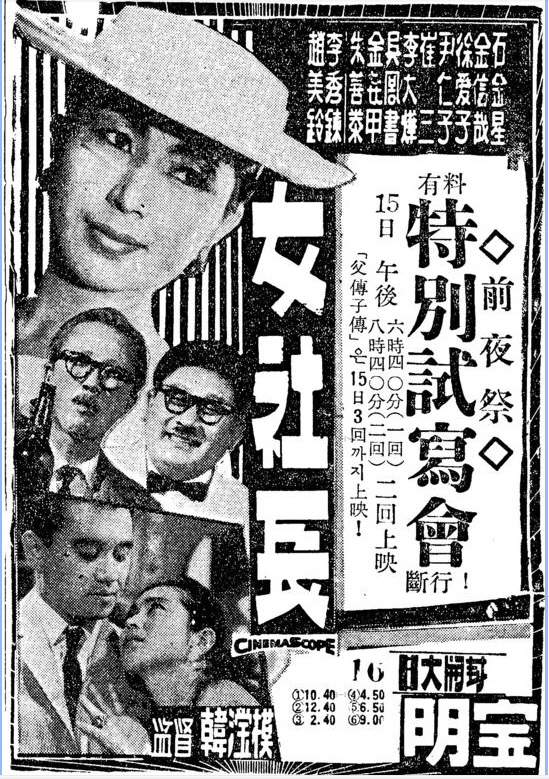
Director: Han Hyeong-mo
Year: 1959
Rating: 5.5
Country: Korea
If one views this
1959 Korean film as a time capsule of Korea in 1959, it can be interesting
almost as a sociological study. As a romantic comedy that it attempts to
be, perhaps not so much as it falls short on both counts. At least for today's
audience. Korea at the time is emerging from the War with the North; at one
point a curfew is mentioned though in a matter of fact way that is not part
of the plot, men have a hint of desperation about them as they apply for
a job, one man being interviewed who has just come out of the army is a comedic
target for his ultra-patriotic manner of speaking, a dog is kicked for being
fed on Western expensive treats that "people cannot afford". These
instances are not a big part of the film but no doubt spoke to audiences
back then. As did its portrayal of modernity that comes full circle by the
end.
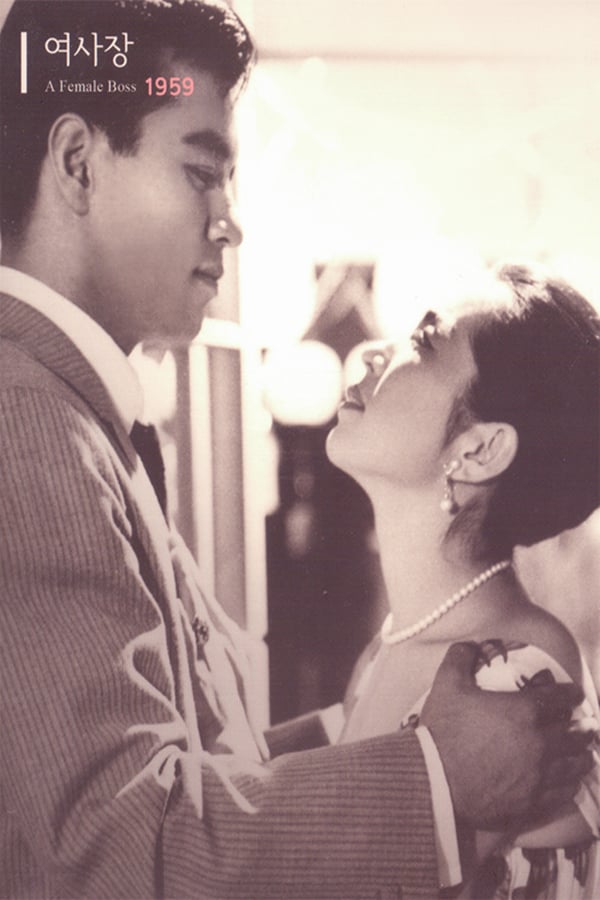
The tune that opens the film's credits
announce its contemporary setting and romantic theme- Burt Bacharach's Magic
Moments. Yong-ho (Lee Soo-ryeon) is one of many looking for work and has
an interview lined up for the following day. He is waiting at a pay phone
to make a call but the woman on the phone is taking forever and they exchange
unpleasant words. It is immediately apparent that she is from the upper class
with her dog named Mario, her flouncy flowered hat and her disdainful attitude
to those waiting. Clearly privileged. Through the film she wears an array
of very modern fashionable outfits. This being a comedy with a sliver of
screwball in it, she turns out to be the head of the woman's magazine company
he is interviewing for. The men being interviewed are probably the comedic
highlight of the film - a line-up of Korean masculinity from extreme to dithering.
One fellow claims to be a Shakespeare scholar - and so the two women ask
him what play is the quote "To be or not to be" from - Hamlet or Romeo and
Juliet - he answers that he has read Hamlet and Juliet, but not Romeo. They
laugh at him in scorn.
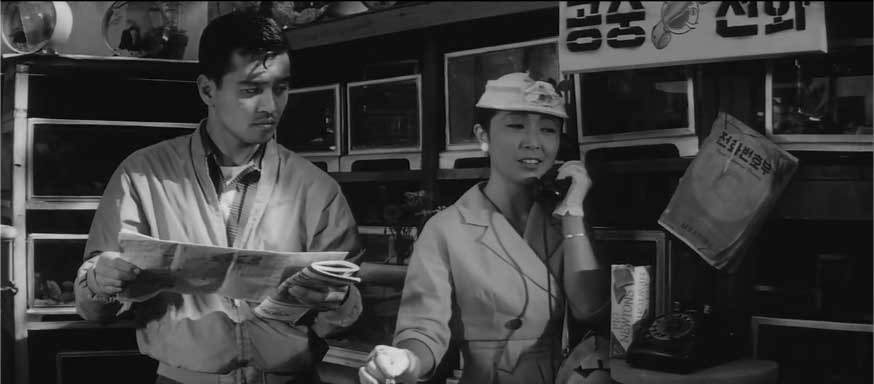
At a quick glance the film might be taken
as a progressive female film. The boss is Joanna (mind the English taken
name at a time of American military presence), the two people directly under
her are women, she flirts with men who she may need favors from, they all
treat the men in the office with mockery giving them nicknames of Mr. Huh
and Toad. Above her desk Joanna has a sign saying "Women are superior to
men". Other modern aspects are the night clubs she visits, the mambo that
is danced to in her office, her sexual come-ons to the man she is attracted
to even taking him to what appears to be a hotel room, the girl in the office
who gets pregnant before marriage. But it is all a front, a mirage, a straw
woman to be knocked down later. The film pokes holes in all of this. Joanna
has the magazine because of wealthy male relatives, it is poorly run with
no magazine being published in three months, staff keep getting asked to
resign on a whim.
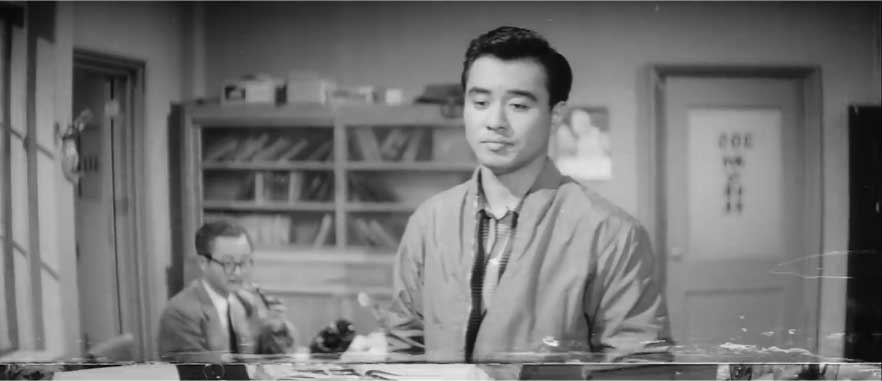
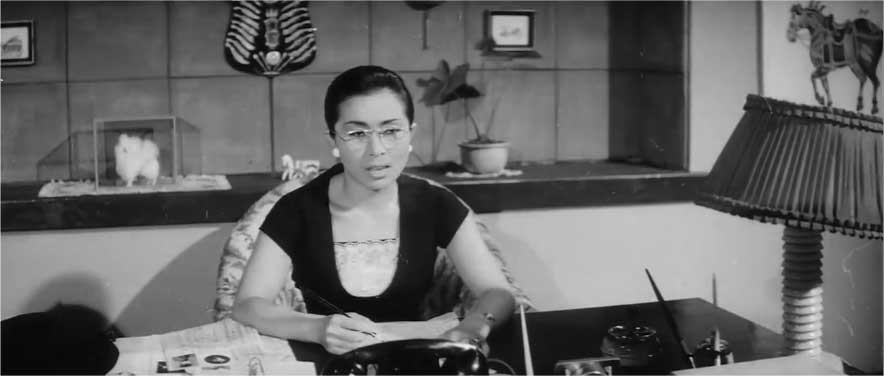
She gives a job to Yong-ho in order to
humiliate him - make his life miserable. He tolerates it quietly because
jobs are scarce in Korea. Yong-ho is an attractive man - he continuously
gets the female gaze directed at him like he is an edible snack - Joanna's
sister develops a crush on him - but he doesn't really have a lot of zing
and is very chauvinistic in his own way. When he was being interviewed he
is asked why he isn't married - he replies because all women he meets are
"bragging women". But he has a good jump shot in a basketball game between
rival companies that lasts for about five minutes of the film. So Joanna
falls for him and him for her - as unlikely a coupling as Godzilla and King
Kong. It makes no sense. They have zero chemistry. Neither are particularly
likable - especially her and her shrew ways. But he doesn't tame her as in
the play, she just finds his male magnetism overwhelming. She wants to be
taken.
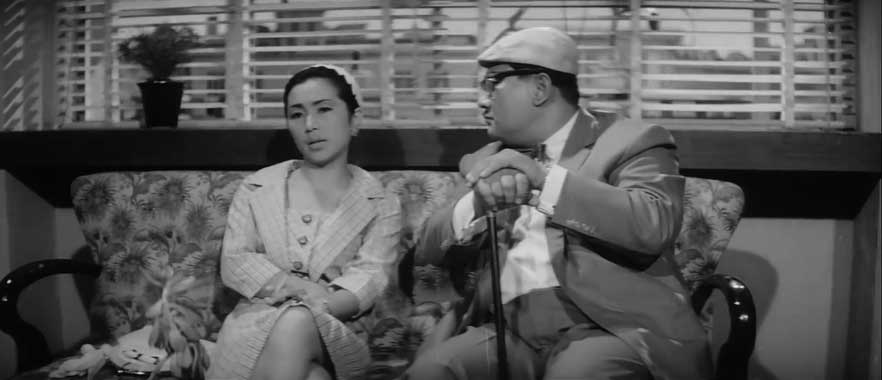
Not to have a spoiler but anyone can see
this coming from their first encounter at the pay phone - she quits, puts
him in charge, gets married and becomes the perfect married wife cooking
for him at home. And under his management the company thrives and the sign
is changed to "Men are superior to women". I wasn't bothered really by this
patriarchal attitude - I mean it is 1959 Korea - not so different from most
of the world at that time. In the Korean film My Sister is a Tomboy (Hussy)
which the same director helmed in 1961 almost the exact same scenario takes
place. A woman just needs the right man to put her in her place - at home.
It is just that it is a slow somewhat dullish film with two leaden performances
- the side characters are much livelier and the sister is adorable - marry
her you idiot. A lot of it is filmed outside in what I assume was Seoul and
I loved those parts - big American cars and small carts side by side, the
low level skyline. The Korean economic miracle was yet to come.
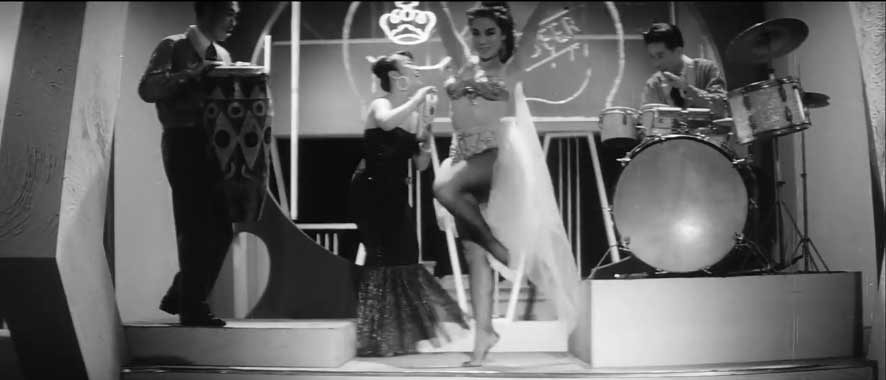
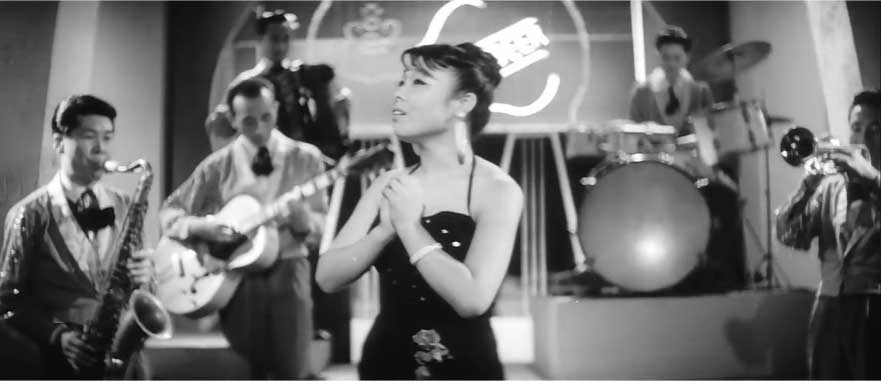
It is directed by Han Hyeong-mo who was
considered one of the top Korean directors of the 1950s in particular for
strong female characters as in Madame Freedom (a married woman has an affair),
My Sister is a Tomboy/Hussy (a female judo expert) and The Hand of Destiny
(a female North Korean spy). His female characters ran the show - think Bette
Davis and Joan Crawford - in a period when normal Korean women were very
traditional homemakers and mothers. They were transgressive. Modern in dress,
attitudes towards work and sex and towards their place in society. His films
were commercially very successful and showed that in Korea, Korean films
could compete against American films. He also broke the taboo of kissing
with the first on-screen kiss in a Korean film in Hand of Destiny (1954).
These films helped launch what is termed the Golden Age of Korean cinema
from 1954 - 1972. His films have had a few retrospectives in the West, a
very recent one being at the Korea Society in NYC.
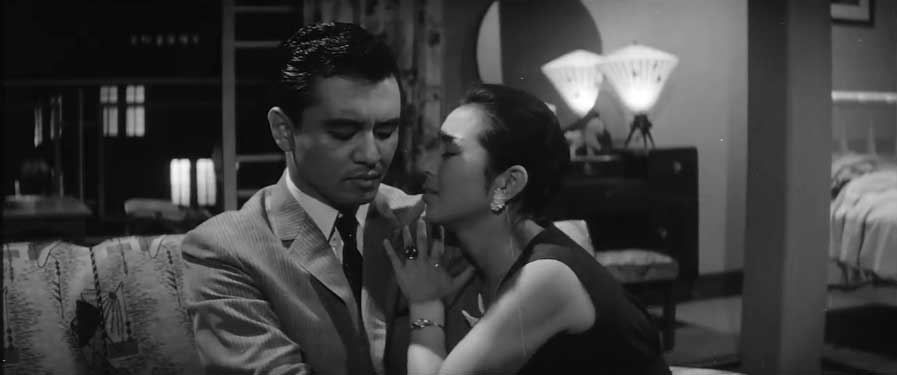
At their website they have a video of Christina
Klein who wrote Cold War Cosmopolitanism: Period Style in 1950s Korean Cinema
talking about the director and his films. She argues that the reason that
he often had an ending of a woman returning to her expected position in society
was due to basic commercial needs. That a woman who did not would be a disaster
at the box office back then but giving an audience an affirmation of their
prejudices was what they wanted. That the audience allowed the first 80 minutes
of a woman's modernity if they had this type of ending. Maybe but from today's
perspective it feels like a defeat for feminism - a kick in the shins - saying
this is where you will be really happy. Cooking kimchi. This film and a few
of his others are up on YouTube in the Korean Archive Channel.










